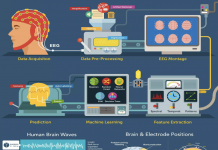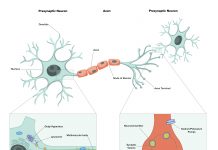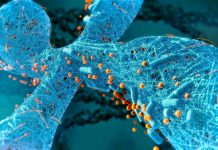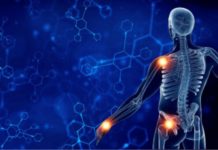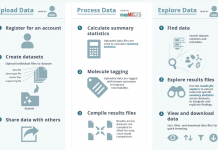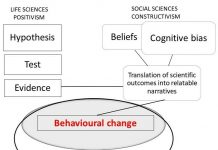Open Access Government produces compelling and informative news, publications, eBooks, and academic research articles for the public and private sector looking at health, diseases & conditions, workplace, research & innovation, digital transformation, government policy, environment, agriculture, energy, transport and more.
Home 2024
Archives
AI healthcare research: Pioneering iSMART Lab
Dr Narges Armanfard, Professor, talks us through the AI healthcare research at McGill University which is spearheading a groundbreaking initiative – the iSMART Lab.
Contribution of oxidative stress to neurodegenerative disease
Paul A. Hyslop, from Arkley BioTek Indianapolis, details an ongoing specific research approach to identify, characterize, and validate physiologically relevant neuronal targets of H2O2 in designing therapeutics for neurodegenerative disease progression.
Internet-delivered cognitive behavioural therapy
Heather D. Hadjistavropoulos, Hugh C. McCall, and Jill A. B. Price, walk us through internet-delivered cognitive behavioral therapy tailored to public safety personnel.
Insights on metabolic health and reproductive wellness with Dr. Carol Elias
In this exclusive interview, Dr. Carol Elias simplifies the complex link between metabolism and reproduction, sharing insights into the science behind our physiological balance.
Decoding the patterns of spiderweb capitalism
Dr Kimberly Kay Hoang, the Director of Global Studies at the University of Chicago’s Department of Sociology, reflects on ‘spiderweb capitalism’ and her efforts to unravel opaque financial networks worldwide.
Revolutionizing pain medication: Preventing addiction and side effects
Stephen Vanner, president of pHarm Therapeutics Inc., and Christoph Stein, inventor and co-founder, discuss a new class of analgesics for pain caused by tissue injury and inflammation.
Data and specimen-sharing tools offer new discovery opportunities for ME/CFS researchers
Within the field of Myalgic Encephalomyelitis/Chronic Fatigue Syndrome (ME/CFS) research, two online tools: mapMECFS (Mathur and Carnes, 2021) and searchMECFS play a crucial role in advancing the understanding of ME/CFS by encouraging researchers to share and use data and biospecimens that are stored in centralized and easily accessible data portals.
Enhancing marathon safety: The role of low-dose aspirin in cardiac arrest prevention
Arthur J. Siegel, Medical Director at MGH Internal Medicine Associates, Belmont, MA, USA tells us how low-dose aspirin can support primary prevention of marathon-related cardiac arrest in middle-aged men with coronary atherosclerosis.
Moving past animal experiments to understand human neurological disease
Richard J. Miller, PhD, Professor Emeritus of Pharmacology at Northwestern University Feinberg School of Medicine, says that the belief monkeys and other animals are essential for performing translationally useful research for human neurological disease is outdated and incompatible with 21st-century science.
Understanding and supporting neurological conditions among the incarcerated
Samuel Han and Audrey Nath discuss neurological conditions among the incarcerated, who they argue are a medically underserved population.
RNA and DNA flipons in health and disease
Flipons are the next step in DNA research. What they are, their role in DNA and RNA coding, their impact on medical science, and their relation to the immune system are discussed here.
Dementia prevention: Raising awareness about dementia and risk reduction
We hear from Dr Anthony J. Levinson, who is part of an academic group developing evidence-based online resources to complement dementia prevention strategies and support care partners.
Exposure to Libby Amphibole: The clinical picture of autoimmune disease
Karen Lee Morrissette and Jean C. Pfau from the Center for Asbestos-Related Disease discuss the clinical presentation and complexity of the autoimmune disease progression among those exposed to Libby Amphibole.
The future of dentistry: Exploring the latest advancements in dental imaging
Advancements in dental imaging over the past two decades have been remarkable, such as cross-polarization OCT; Yihua Zhu and his team at the University of California, San Francisco, have been investigating different diagnostic imaging methods.
A music and mental health research clinic
The University of Ottawa Institute of Mental Health Research at The Royal details the context and challenge of a music and mental health research clinic.
A crisis in workplace mental health injuries… And in work itself
Dr Mélanie Dufour-Poirier, Associate Professor at the University of Montreal’s School of Industrial Relations, discusses opportunities to safeguard employees’ mental health injuries and wellbeing through union involvement.
Beyond the numbers: COVID-19 data miscommunication
Prof Giampiero Favato and Cristina Oliva, MD, explain how storytelling shapes health behaviours beyond the numbers. Here, we learn lessons from COVID-19 data miscommunication.
Canadian workers at risk: Removing barriers to treatment for public safety professionals (PSP)
Gregory S Anderson, from Thompson Rivers University and Helen Dragatsi, from Government of Canada speak to us about removing barriers to treatment for Canadian workers at risk.
Impacts to address sexual violence in Canada and internationally
Shaheen Shariff, Ph.D. is James McGill Professor and Project Director of iMPACTS, which focuses on addressing sexual violence in Canada and internationally.
Engineered endosymbionts for cellular control
Christopher H. Contag from the Institute for Quantitative Health Science and Engineering (IQ) at Michigan State University discusses the potential of engineered endosymbionts as biologically encoded remote controls for regenerative medicine.

